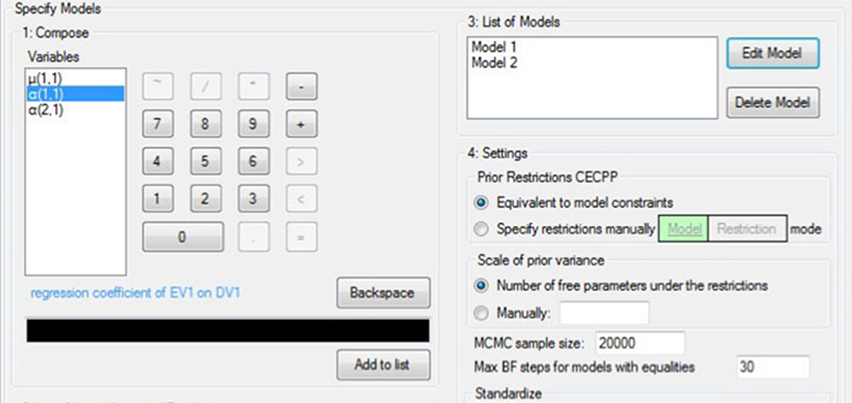Do Delinquent Young Adults have a High or a Low Level of Self-concept?
This study explored the levels of self-concept of delinquent young adults (n = 873). This question is of theoretical and practical importance, as therapeutic programs addressing the self-concept must be based on clear evidence.
A prior predictive loss function for the evaluation of inequality constrained hypotheses
In many types of statistical modeling, inequality constraints are imposed between the parameters of interest. As we will show in this paper, the DIC (i.e., posterior Deviance Information Criterium as proposed as a Bayesian model selection tool by Spiegelhalter, Best, Carlin, & Van Der Linde, 2002) fails when comparing inequality constrained hypotheses.
Illustrating Bayesian evaluation of informative hypotheses for regression models
In the present article we illustrate a Bayesian method of evaluating informative hypotheses for regression models. Our main aim is to make this method accessible to psychological researchers without a mathematical or Bayesian background.
An introduction to Bayesian model selection for evaluating informative hypotheses
Most researchers have specific expectations concerning their research questions. These may be derived from theory, empirical evidence, or both. Yet despite these expectations, most investigators still use null hypothesis testing to evaluate their data, that is, when analysing their data they ignore the expectations they have.
Directly evaluating expectations or testing the null hypothesis? Null hypothesis testing versus Bayesian model selection
Researchers in psychology have specific expectations about their theories. These are called informative hypothesis because they contain information about reality. Note that these hypotheses are not necessarily the same as the traditional null and alternative hypothesis.
Moving beyond traditional null hypothesis testing: evaluating expectations directly
This mini-review illustrates that testing the traditional null hypothesis is not always the appropriate strategy. Half in jest, we discuss Aristotle’s scientific investigations into the shape of the earth in the context of evaluating the traditional null hypothesis.
Evaluating expectations about negative emotional states of aggressive boys using Bayesian model selection
Researchers often have expectations about the research outcomes in regard to inequality constraints between, e.g., group means. Consider the example of researchers who investigated the effects of inducing a negative emotional state in aggressive boys.
Bayesian model selection of informative hypotheses for repeated measurements
When analyzing repeated measurements data, researchers often have expectations about the relations between the measurement means. The expectations can often be formalized using equality and inequality constraints between (i) the measurement means over time, (ii) the measurement means between groups,






